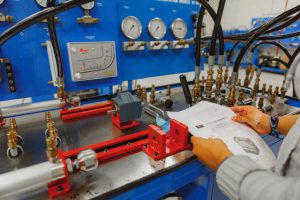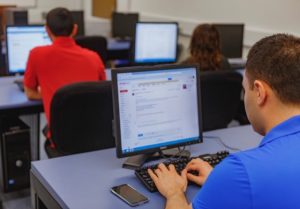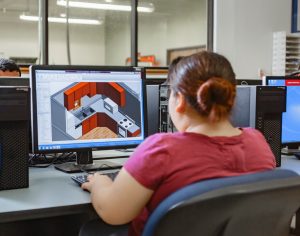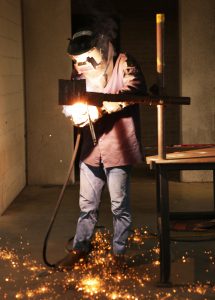(MARSHALL, Texas) – Students graduating from Texas State Technical College’s Industrial Systems – Electrical Specialization program in Marshall leave with knowledge about commercial wiring, electrical theory, hydraulics, pneumatics and other topics.
“There is actually big money locally if the students want to stay local,” said Edward Chaney, a TSTC program instructor.
Texas had more than 11,100 electrical and electronic engineering technologists and technicians making an annual mean wage of $68,560 in May 2019, according to the U.S. Bureau of Labor Statistics.
The East Texas Council of Governments cited the Austin, Dallas, Fort Worth, Houston, Midland and Odessa areas as having the highest demand for workers. The top skills sought by employers include knowledge in forklift operation, repairs and power tools, along with communication skills and problem-solving.
The labor statistics bureau predicts the number of jobs for electrical and electronic engineering technologists and technicians will rise to more than 127,000 by 2029.
Warfab Inc. in Hallsville and Longview specializes in forging-press work, heavy equipment, manufacturing and specialty welding services for the clean coal, mining, steel mill, offshore drilling, petrochemical, pipeline and power-generation industries.
“Sometimes we try an industrial maintenance person out as a machine operator, which is different from a machinist,” said Monica Coulter, Warfab’s human resources manager. “Machine operators operate the smaller, different kinds of equipment that is not quite as technical.”
Coulter said equipment maintenance is done mostly by workers in the field. She said the company hires machinists to run lathes, mills and other computer-aided equipment.
TSTC now offers a way for students to get a hands-on glimpse into the program. The Basic Industrial Systems – Electrical occupational skills award features three classes in basic electrical theory, commercial wiring and motor controls that can be taken in one semester.
“It is going to take a dedicated student to complete it,” Chaney said. “The OSA will be labor-intensive.”
Registration for the spring semester begins November 16.
For more information on Texas State Technical College, go to tstc.edu.








